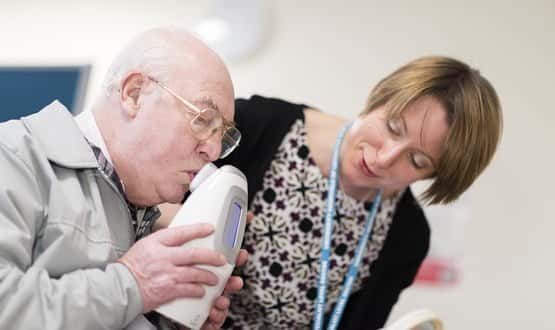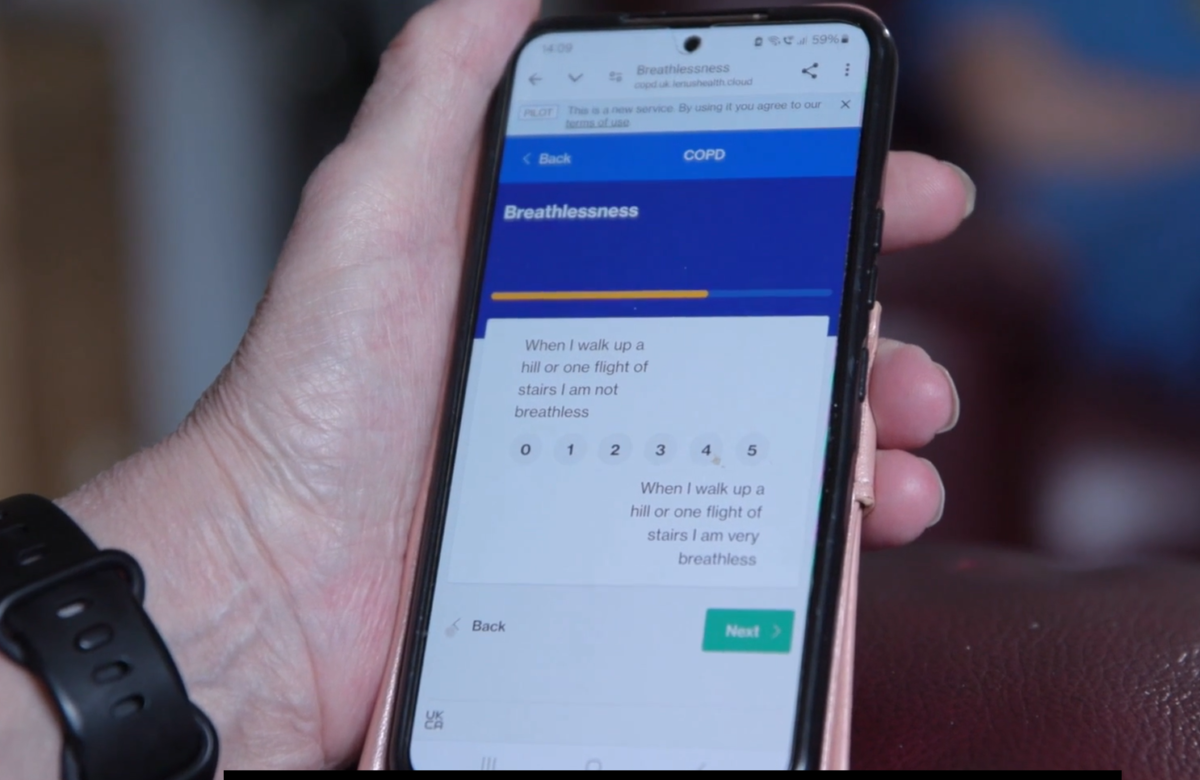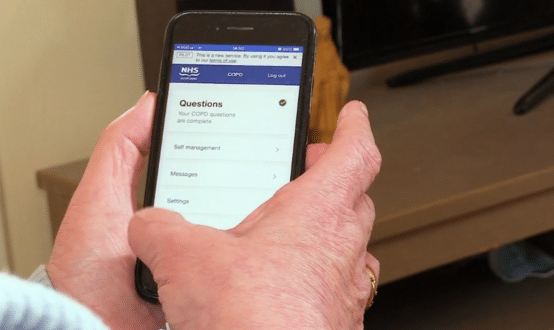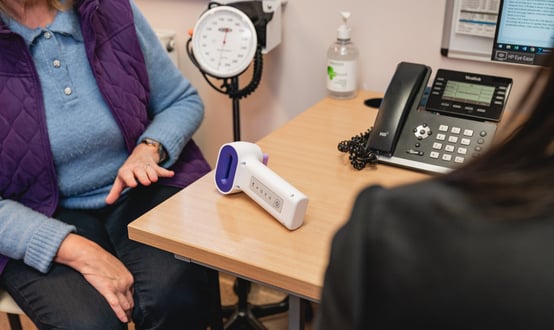Researchers talk up potential of wearable and implantable tech for people with COPD

A new generation of wearable and implantable technologies has the potential to vastly improve the lives of people living with Chronic Obstructive Pulmonary Disease (COPD), new research has claimed.
According to a report from the National Institute for Health Research (NIHR) in collaboration with Imperial College London, portable devices could allow the three million UK people living with COPD to better manage their health at home and prevent a further decline in their condition.
Among the proposed technologies include sensors embedded in clothing that estimate the amount of air bring inhaled, exhaled and stored within the patient’s lungs at any given time. Any changes in the amount could help detect signs of a flare-up, alerting patients or carers that emergency medication may be needed.
Alternatively, endobronchial valves and coils inserted into the lungs via flexible bronchoscope could remove the effect of trapped air the lungs and reduce a patient’s symptoms, without the need for invasive surgery.
But further research is required into the safety and viability of such devices before they can hit the market said the report, which was published to mark World COPD Day on 15 November.
Professor Guang-Zhong Yang of Imperial College London said: “In order to maximise their clinical potential and impact, COPD medical devices need to be comfortable to wear, easy to use and cost effective. They also need to be reliable and provide relevant and accurate information that improves diagnosis and treatment.”
COPD is a group of lung conditions whereby patients suffer from narrower airways, making it harder to empty air from the lungs. Bacteria, viruses and pollutants can inflame the airways and trigger flare-ups, which can cause further deterioration to the lungs.
There are 1.2 million people who have been diagnosed with COPD in the UK alone, although it’s believed another 1.8 million are living with the condition undiagnosed.
NIHR said that equipping COPD suffers with tools for better managing their condition at home could cut hospital stays, helping the NHS claw back a portion of the £800 million it spends on direct COPD healthcare each year.
It is further estimated that some 24 million working days are lost each year to COPD, the equivalent to £2.7 billion worth of productivity.
Anthony De Soyza, NIHR national specialty lead for respiratory disorders, said: “These new technologies have the potential to hand greater control to patients with COPD and their carers, and empower them to better manage what can be such a debilitating condition. This is an exciting development in COPD and offers hope to some three million people living with the disease.
“There are still key challenges around safety, long-term reliability and cost before these technologies can be translated into clinical use, which is why more research studies are needed to ensure the best possible outcomes for patients.”
In April, Digital Health News reported that global digital exemplar Salford Royal NHS Foundation Trust was planning to upload data from wearables into its electronic patient record. The following month, it was revealed that wearables giant Fitbit had been in discussions with the NHS.





3 Comments
I’m a patient of COPD.
Fine, but the most valuable aid would be a hand held air pollution detector.
Im 47 & was diagnosed last december, it sounds like a brilliant idea for us sufferers
Comments are closed.